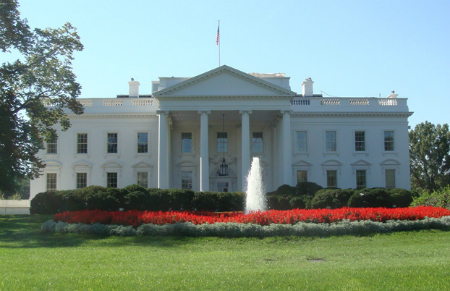
The race to the White House is beginning to heat up to about the right temperature heading toward the Nov. 6 election. The put-downs and accusations confirm that it is no exaggeration that America is at a momentous crossroads. But there is also great unexploited potential for political climate change if the ensuing campaign isn’t allowed to drift into the kind of extraneous issues that dominate much of the discourse.
The back-and-forth negative ads, personal assaults and vitriolic stump speeches have both candidates screaming foul. President Barack Obama’s surrogates, for example, have engaged in not-so-subtle character attacks that paint presumptive Republican nominee Mitt Romney as an out of touch, tax-dodging, millionaire venture capitalist who would bestow tax cuts on his wealthy friends at the expense of the middle class.
Throughout America’s history, campaigns also have been fraught with racial innuendoes on both sides of the political divide. And it appears the Obama campaign is not above injecting racial coding in covert and overt ways.
It was hardly a gaff, for example, when Vice-President Joe Biden took the stage before a predominantly Black audience in Virginia to spout that the Republican contenders would “unchain Wall Street” by gutting financial regulations Obama signed into law two years ago.
“They’re going to put y’all back in chains,” Mr. Biden quipped, knowing that Blacks would equate “y’all” to “us” and “chains” to slavery.
Romney was quick to shoot back, painting Obama as “angry and desperate” and telling him to take his “hate” home to Chicago.”
The power of pandering, and deep philosophical differences between the two candidates, guaranteed the race issue wouldn’t be shelved for long. Voters looked past the skin facade four years ago at Obama’s insistence that America see him as a “healer.” If his campaign now chooses to engage in mindless contradictions, voters should take that into account.
On a larger stage, the Obama campaign has made catering to special interests a new art form. He has conspicuously and unapologetically pandered to Hispanics, Blacks, gays, teachers, organized labor, women voters and welfare recipients. His opposition to vote ID laws is just wrong.
Super PACS complicate our decision-making. These PACS represent an inflexible political perspective. Their strategic objectives are intended to influence or oppose candidates and stimulate voter participation with millions of unfettered dollars. Mainstream voters must ask themselves whether they need special interest groups to think for them, pick their candidates or dictate their vote.
My guess is that the Obama campaign is too fragile to survive race pandering this time around. These types of overtures work for those who still believe the president’s skin color is the issue. It remains to be seen whether independents, and those still undecided, will be sucked into his special interest army again.
I also doubt the American public is terribly focused on what Romney paid in taxes when Obama lacks a comprehensive, realistic and compelling vision. The government we bought and paid for since 2008 has taken a great toll on our pocketbooks.
Clearly, America is not better off economically than it was four years ago.
The political selection process requires voters to sort through the hyperbole and ultimately choose a candidate with the best plan to grow the economy and put America back to work. Obama and Romney should be discouraged from engaging in slanderous, malicious personal attacks. We don’t want political contests won “by any means necessary.” But distinctions must be made between playing hardball and dirty politics. Politicians have an obligation to play hardball. And negative campaigning works — if not taken too far. And we’re smart enough to know what’s “too far.”
Careful screening and evaluation of the candidate’s character, record and platform requires discretion, critical judgment, vigilance and a readiness to seize the opportunity to become the architects of our future.
So with the ball in our court, let politics be politics.